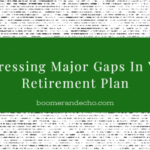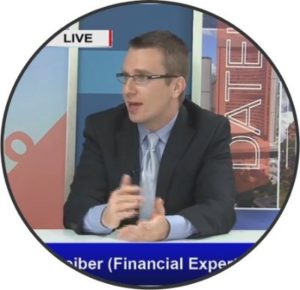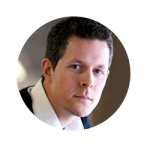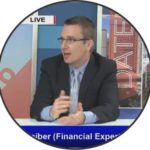 A good majority of my clients reach out to me looking for retirement planning advice. They want to know if they have enough assets to retire comfortably, how much longer they should work, what type of investment strategy makes sense in retirement, when to take CPP and OAS, and how to set up tax efficient withdrawals from their savings and investments.
A good majority of my clients reach out to me looking for retirement planning advice. They want to know if they have enough assets to retire comfortably, how much longer they should work, what type of investment strategy makes sense in retirement, when to take CPP and OAS, and how to set up tax efficient withdrawals from their savings and investments.
My conversation with Kornel Szrejber for the Canadian Financial Summit this year was about addressing the major gaps in your retirement plan. Below is a summary of what we discussed – but you can check out the full interview, along with the rest of the line-up, at the Canadian Financial Summit website.
Investing is just one part of the Plan
Kornel Szrejber: A common mistake that I see Canadians make is focusing only on what investments to buy, as opposed to seeing the investments that they choose as just one piece of financial planning and their financial wellbeing. Can you talk about what trouble we as Canadians can get into, if we are only focusing on what investments to buy as opposed to looking at the whole picture?
Robb Engen: It is common for Canadians to focus on their investments rather than looking at all aspects of their finances. In fact, most of the clients that come to me want to talk about investing.Yes, investing is important. Setting up a investment strategy that matches your risk tolerance and time horizon, and more importantly one that you can stick with for the long term is crucial to your overall retirement plan. But when you step back and look at the bigger picture, you’ll see that financial planning is about so much more than investing.
It’s a comprehensive look at your spending. It’s about making sure you and your spouse are on the same page – understanding your values around money and aligning that with your spending habits. It’s about disaster proofing your life by having appropriate life and disability insurance, a will, and an emergency fund. It’s about mapping out both your short and long term goals so that you can prioritize your savings into the appropriate vehicle(s).
Attributes of an Early Retiree

Kornel: You’ve worked with many individuals and families here in Canada. Are there any patterns that you’ve noticed between those that are struggling financially vs those that are on-track to retire early? (i.e. actionable things that people can do to be one of those that are on-track).
Robb: The people who seem to have it together tend to have a reasonably low cost of living and can max out at least their tax-sheltered accounts (RRSP/TFSA) each year. They have clearly defined short- and long-term goals that keep them focused on saving. Many have a high income, but that is not a prerequisite to a good financial future. They also automate many of their financial decisions, so they pay themselves first through automatic contributions, they set alerts to pay their credit card balance in full each month, and their investments automatically rebalance (through a robo-advisor or an asset allocation ETF).
Conversely, those who are struggling usually have some high interest debt and have trouble getting through the month without dipping into credit. They may or may not have a good handle on their expenses, but there’s just no wiggle room or margin for error. That means, when something comes up, and it always does, any progress made goes out the window and they can’t seem to get ahead. They treat credit card debt like a way of life and not like the ‘hair-on-fire’ emergency that it is. And, they typically don’t know exactly where their money is going from month to month.
Another major reason why so many people struggle financially is because their list of wants exceeds their ability to pay for them. I love the line from Paula Pant, author of the Afford Anything blog, that goes:
“You can afford anything, you just can’t afford everything.”
I think this is so true when it comes to our personal finances and all of those short-term goals and aspirations that we all have. Money is finite and we simply can’t do everything we want – at least not all at once. So, I think the people who are on track to retire early have a good sense of where their money goes and they’re able to prioritize saving for retirement while juggling all of their other short-term needs and wants.
Not enough attention paid to these Retirement Planning decisions

Kornel: Are there any important financial decisions that you find Canadians tend to oversimplify and make quick decisions about, when in reality they actually need thorough analysis and have a very significant impact?
Robb: Usually anything involving a bit of math. One that comes to mind is when you leave a job and whether to keep your pension or take the commuted value and invest it in a LIRA. This is not a decision where you just want to take the advice of a friend or colleague. It requires some thoughtful analysis.
This is actually a decision I’ve had to make for myself when I left my day job earlier this year, and even I sought an outside expert opinion help me decide. Another critical decision is when to take CPP. I’ve heard so many myths about CPP and that you should take it as soon as possible (i.e. at 60), but in many cases the most optimal age to take CPP is to defer it to age 70. This enhances your benefit by 42% and provides longevity insurance.
Finally, there’s the question of whether to contribute to an RRSP or TFSA. If you’re below a certain tax bracket it probably makes more sense to invest in your TFSA rather than an RRSP, and vice versa.
Impactful financial decisions
Kornel: What would you say are some of the most impactful financial decisions that we can make to set ourselves up for success? And which ones can we do ourselves vs having to seek out the help of a fee-only financial planner like yourself?
Robb: Starting to invest at a young age and, more importantly, setting up a system to make the contributions automatic. You can start with as little as $25 or $50 a month. It’s not about the starting amount, but about building the habit of saving over time. Be a savvy financial consumer and understand where incentives may be misaligned, or when the seller may not have your best interests at heart. That’s the essence of financial literacy.
Spend less than you earn, obviously, and try to avoid debt where possible. Don’t buy more house than you can afford, and if you do buy make sure you stay there for 10 years.
For those seeking advice, I’d say the biggest decision is about retirement readiness. Do you have enough to retire and live a comfortable lifestyle? The answers require a lot of math and careful analysis about your spending, rates of return, and determining how your various income streams all fit together at different ages in retirement.
That’s why William Sharpe calls retirement income the nastiest hardest problem in finance. In reality, any major life event such as marriage, having children, buying a house, changing careers – anything that’s going to require a major shift in your own personal finances could benefit from some expert advice, or at least a sober second thought.
Reviewing your Investment Portfolio
 Kornel: For anybody new to this, what are investment portfolio reviews, and what are the different things that you like to look for when analyzing if someone has any critical flaws in their investment portfolio?
Kornel: For anybody new to this, what are investment portfolio reviews, and what are the different things that you like to look for when analyzing if someone has any critical flaws in their investment portfolio?
Robb: I’ll typically look at a client’s investment statements to determine their asset mix and whether it’s appropriate for their age and stage. I’ll look at their holdings and see if there’s anything missing, or in many cases if there’s a lot of overlapping funds with similar holdings. There’s some odd stuff out there. If it’s a managed portfolio, I’ll look at the fees and ask questions about what other value-added services (if any) they get from their advisor like tax planning, estate planning, goal prioritization, or if they’re just getting an email once a year at RRSP season.
One client recently asked for a second opinion on his managed portfolio and I determined that his low(ish) cost, well managed portfolio was well worth the fee and that he should stay put. I’ll always share low-cost solutions like bank index mutual funds, a robo-advisor, or a self-directed ETF portfolio. More importantly, I’ll share the time, effort, and complexity required to manage each of those solutions to determine the best fit for my client.
The goal is not simply to go with the lowest fee but to find a solution that the client can implement and then stick to for the long term. That means meeting my clients where they are. For example, if someone has a bank managed portfolio of mutual funds I can point to the same bank’s suite of index funds at half the cost and suggest they talk to their advisor about them.
Investing for Early Retirement
Kornel: For those that are working towards an early retirement or are already there, is there a particular portfolio structure that you like?
Robb: I’m a big fan of simplicity and would suggest either opening a self-directed online brokerage account (I use Wealthsimple Trade) and buying an asset allocation fund like the ones offered by Vanguard and iShares. Alternatively, if they’d prefer not to manage their own money, to open a robo advisor account and invest through a digital platform.
The simpler, the better. So, if you have multiple account types like an RRSP, TFSA, maybe a LIRA from an old job, plus a taxable account, I’d suggest just using the same asset mix in each account rather than tinkering with different ETF combinations in each account.
I don’t see the point of investing for income in the asset accumulation stage, but certainly once you’ve reached retirement age, depending on your level of assets, you could switch to an income or dividend strategy if your goal is to preserve your capital.
Related: Vanguard’s VRIF – Your New Retirement Income Solution
I’m likely to recommend a bucket strategy that includes 1-2 years’ worth of spending in cash savings, another 3-5 years of GICs in a ladder of rolling maturity, and then long-term investments in low cost, globally diversified ETFs. Use the GICs to replace the cash you spent, and then sell off some investments to replace the GIC(s) that matured.
Final thoughts
It’s a common mistake to focus solely on your investments while ignoring other potentially more important aspects of your finances – the major gaps in your retirement plan.
Retirement planning requires careful analysis to put everything together, from your investments to your government benefits, workplace pensions (if any), housing situation, and legacy & estate planning.
There are enough low cost and diversified investment solutions out there to consider investing to be solved. Find the investing solution that works for you, automate it, and get the hell out of the way so you can focus on the other areas of financial and retirement planning that deserve your attention.
 In addition to running the Boomer & Echo website, Robb Engen is a fee-only financial planner. This article originally ran on his site on October 15, 2020 and is republished here with his permission.
In addition to running the Boomer & Echo website, Robb Engen is a fee-only financial planner. This article originally ran on his site on October 15, 2020 and is republished here with his permission.


